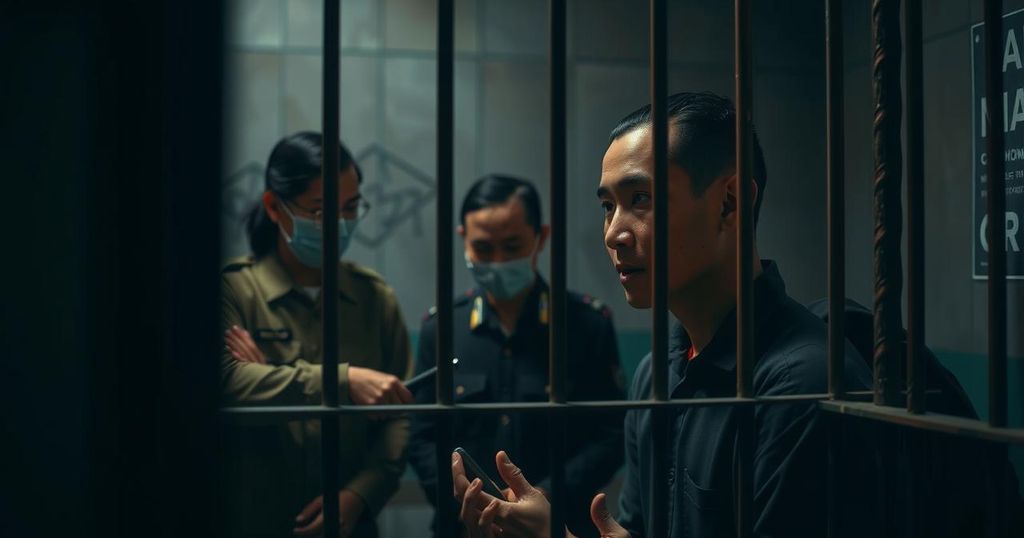The UN Working Group on Arbitrary Detention has deemed Anon Nampa’s imprisonment unjust under international law. He faces a 14-year prison sentence due to Thailand’s lèse-majesté law, receiving significant advocacy support for his release. The WGAD has called for immediate liberation, citing ongoing violations against his rights and the need to reform oppressive legal standards in Thailand.
The United Nations Working Group on Arbitrary Detention (WGAD) has declared the imprisonment of Thai lawyer and pro-democracy activist Anon Nampa as arbitrary and a violation of international law. Anon is serving a 14-year sentence under Thailand’s lèse-majesté law, which punishes those who defame the monarchy. His case received significant attention after a petition by FIDH and Thai Lawyers for Human Rights, highlighting his prolonged pre-trial detentions and repeated bail denials. The WGAD urged immediate release and compensation for Anon while emphasizing that his legal battles stem from exercising free speech during Thailand’s recent protests.
Despite mounting international scrutiny over the harsh application of Article 112, the Thai authorities continue to arrest individuals for political dissent. The WGAD emphasized the concern that this law perpetuates discrimination against individuals based on their political beliefs. With Anon still facing further legal actions linked to his activism, the call for reforming this contentious law grows louder, echoing around the globe as advocates seek to protect human rights in Thailand.
In Thailand, lèse-majesté laws under Article 112 have long been controversial, often utilized against those who criticize the monarchy. Anon Nampa has become a prominent figure in the fight for democracy and human rights, facing severe repercussions for his outspokenness. His case symbolizes the broader struggle for free expression in a country where dissent is met with harsh punishment. The recent ruling from the UN highlights a growing international awareness of these human rights violations, urging the Thai government to align its laws with international standards.
The WGAD’s ruling is a powerful reminder of the global commitment to human rights, highlighting Anon Nampa’s plight within a system that increasingly stifles free speech. As advocacy for his release intensifies, it underscores the urgent need for legal reforms in Thailand. The ongoing situation calls for international support to ensure that such oppressive laws are reexamined and ultimately changed, paving the way for a more open and democratic society.
Original Source: www.omct.org



